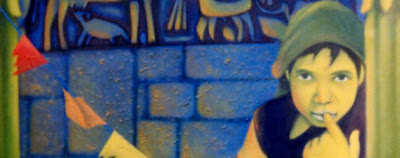It is hard to decide where to start when writing about DesiCrew.. The only thought that comes to mind is, AWESOME. Few can top the flair they infuse in their business. Whoever said that businesses are like people, would surely find exemplary conduct in the behavior of this particular team. DesiCrew found its purpose from the social and market conundrums holding India back from reaching its maximum potential in geo-political growth. When we think of India’s problems of over-population, poverty and pollution we do not consider that these are problems caused primarily by the extreme overcrowding of cities due to high rural to urban movement of the population. With the current rate of urbanization, in approximately two decades, India’s urban population is set to reach 600 million, a figure twice as high as it is today. One possible solution to the resulting urban poverty and income inequality would be to include and integrate poor migrants into the urbanization agenda. Another solution would be to nip the problem at the bud. DesiCrew seeks to do exactly this by focusing on the development of social activism amongst India’s rural population.
OECD (Organisation for Economic Co-operation and Development) estimates indicate that there are 130 million educated workers in rural India with little or no access to meaningful employment. DesiCrew’s decentralized business model stimulates profit-accumulating social enterprise that benefits clients as well as educated, unemployed Indians.
Founder Saloni Malhotra at a DesiCrew micro-center
OECD (Organisation for Economic Co-operation and Development) estimates indicate that there are 130 million educated workers in rural India with little or no access to meaningful employment. DesiCrew’s decentralized business model stimulates profit-accumulating social enterprise that benefits clients as well as educated, unemployed Indians.
The DesiCrew network is composed of carefully selected rural and semi-urban micro-centers of about 25 facility workers. Each center runs under the guidance of a professional and provides back-end services to global clients. These micro-centers are usually located in territories with populations ranging from 10 to 100 thousand people and the workforce manning these centers are trained by the DesiCrew staff.
DesiCrew's workforce
This business model seems to benefit the community above all by introducing IT-knowledge and computer based jobs, lowering attrition rates amongst families of the community and offering viable but lower costing production for clients. The performance of DesiCrew in managing to cater to multiple industries, geographies, and Indian languages/ dialects hopes to encourage the reversal of currently trending migration. By the looks of their impact and success so far, there is no doubting they will. It comes as no surprise that their priorities seem to be in constant auto-correct mode after having read their vision statements and “Quality Charter.”
The current portfolio of DesiCrew enjoys a strong world-wide reputation for outstanding delivery and an average 40% cost saving from existing clients. In addition to the growing projects, clients and contracted clients, DesiCrew is living proof that a certain stereotype of rural people’s incapacities is indeed unfounded when push comes to pull. The success of DesiCrew reflects the dedicated efficacy of rural BPOs. It is certainly worth keeping an eye out for this organization as they seek to expand the number of employees and clientele of leading companies. Visit http://desicrew.in/index.html to meet the board of directors, management team and partners involved in driving this group forward.
Iliana Foutsitzis is a recent graduate of Northeastern University's Political Science curriculum. Before embarking on a law degree Iliana is spending a gap year in New Delhi, India interning with the Niiti Consulting team. Contact Iliana at ifoutsitzis@gmail.com.













